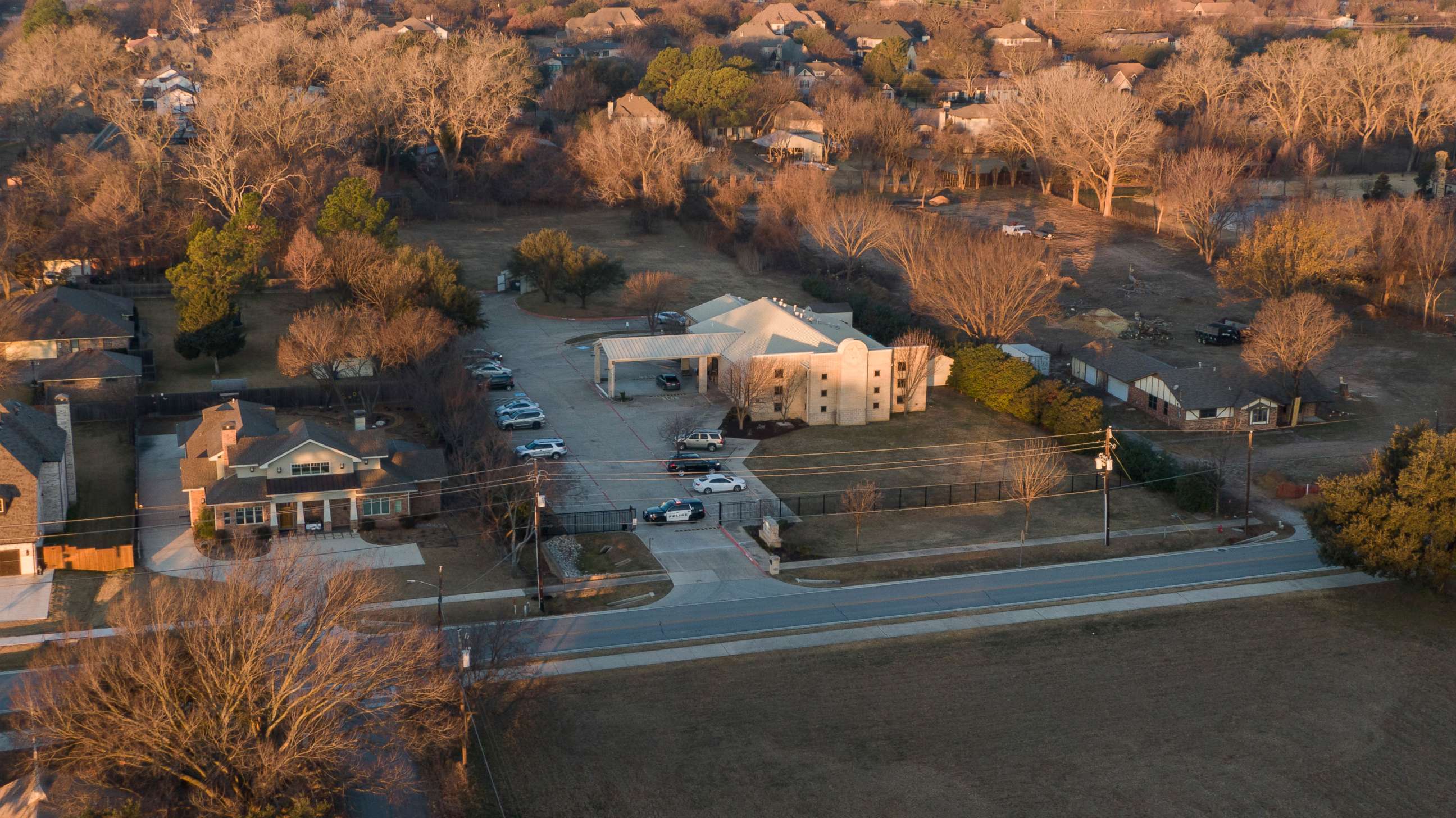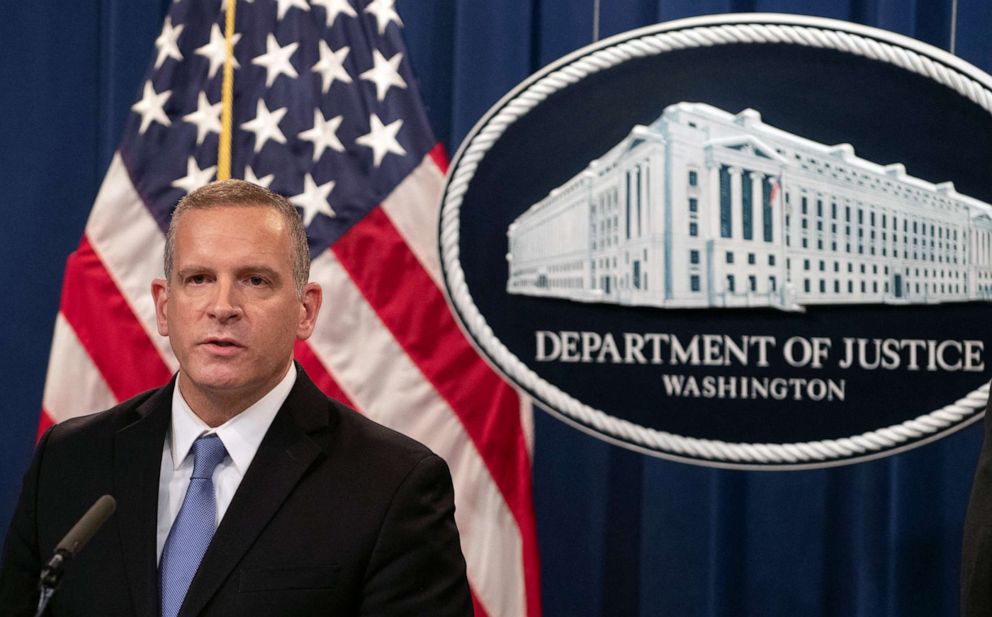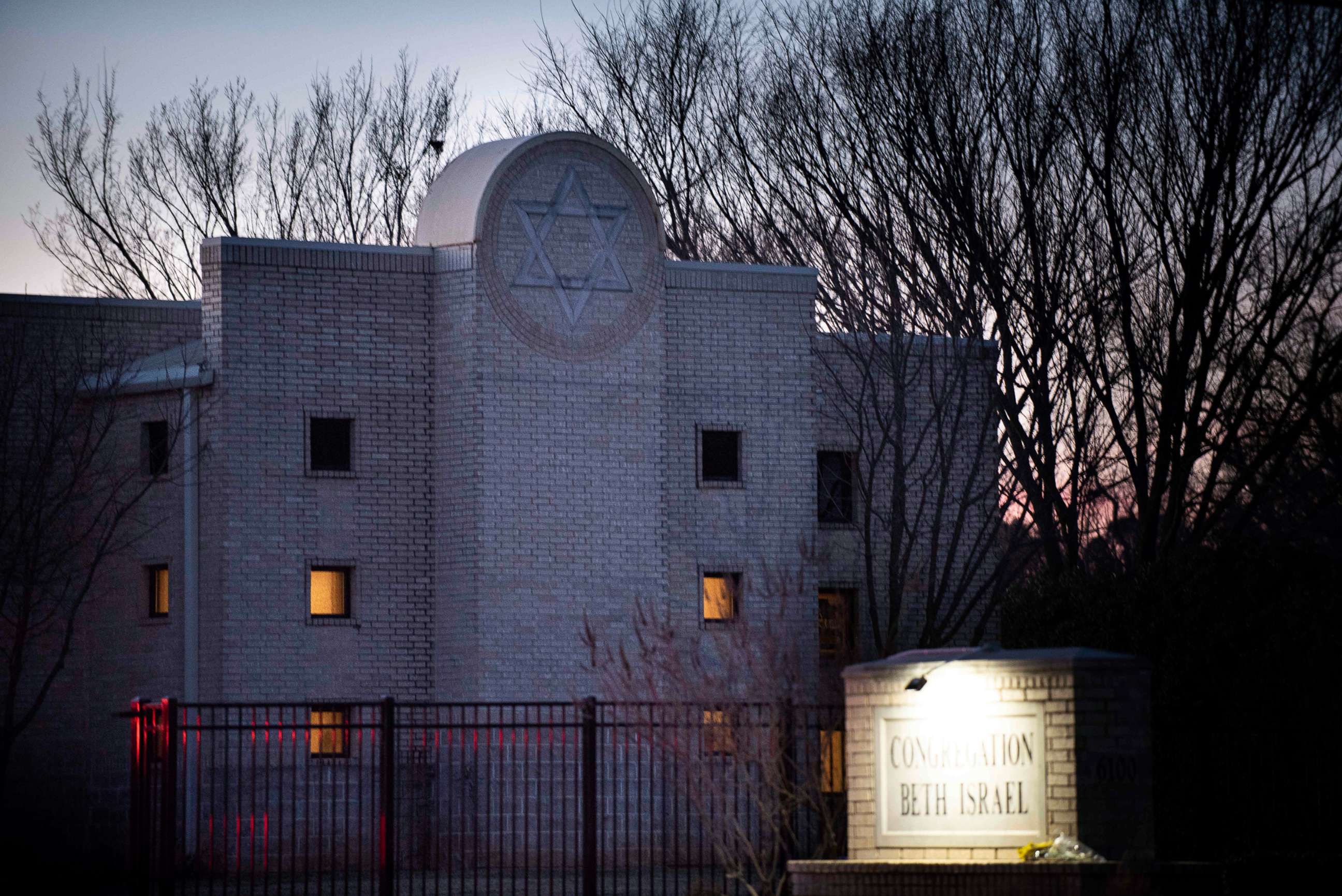DHS, FBI warn faith-based communities they 'will likely continue to be targets of violence'
It comes after a hostage situation at a Colleyville, Texas, synagogue.
Faith-based communities have been and will “likely” be the target of violence “by both domestic violent extremists and those inspired by foreign terrorists," according to a note sent nationwide to law enforcement officials and houses of worship by the FBI and Department of Homeland Security.
“Given the volatile environment, we encourage our partners to maintain strong operational security and situational awareness on events that could be exploited by violent extremists to further their ideological causes,” said Monday's message, obtained by ABC News and written by FBI Deputy Director Paul Abbate and senior DHS official John Cohen.
The warning from federal officials comes after a tense situation at a Colleyville, Texas, synagogue in which an armed man held the synagogue's rabbi and three others hostage while demanding the release of a convicted terrorist.

At 11:45 a.m. on Saturday, police received a 911 call reporting that an intruder, later identified as Malik Faisal Akram, was aggressively confronting Rabbi Charlie Cytron-Walker at Congregation Beth Israel.

Over the next two hours, Akram was heard on live streamed video saying he was holding the rabbi and three other male adults hostage, claiming to be armed with a gun and explosives and discussing his belief that he was going to die. Facebook interrupted the live stream, but law enforcement was able to access the synagogue’s CCTV, allowing the FBI to continue to view the unfolding events in real time, sources said.
A call for assistance to the Quantico-based Hostage Rescue Team came at 1:30 p.m. ET.
Just after noon, Akram instructed Rabbi Cytron-Walker to call New York-based Rabbi Angela Buchdahl of the Central Synagogue in Manhattan. In a series of subsequent calls with Rabbi Buchdahl, the perpetrator threatened to kill the four hostages if convicted Al Qaeda supporter Aafia Siddiqui was not released from federal prison in Texas. Investigators are working to determine why Akram chose Rabbi Buchdahl in Manhattan. Authorities believe it’s because she is the leader of a prominent synagogue in the city where Aafia Siddiqui was convicted.
At 6:20 p.m. ET, the first hostage was released unharmed. About four hours later the FBI's Hostage Rescue Team entered the synagogue. Akram was shot during the entry and later died from his wounds. A handgun, believed to belong to Akram, was recovered inside the synagogue.

Javed Ali, the former senior director of counterterrorism on the National Security Council, told ABC News the message from DHS and the FBI underscores the seriousness of the threat against Jewish places of worship and other potential targets by radicalized individuals in the United States.
"Extremists inspired by global jihadist groups and messages have long sought to attack Jewish targets domestically, and other extremists inspired by white supremacists and neo-Nazi beliefs--like the lethal attacks against the Tree of Life Synagogue in Pittsburgh in October 2018 and the Chabad House in Poway, California April 2019 -- are reminders of this threat," Ali said.
The email sent Monday by the FBI and DHS underscored how conspiracy theories are further inflaming hate-fueled threats.
"Discussions in online forums associated with domestic violent extremist content have referenced Jewish targets tied to conspiracy theories about COVID-19, the outcome of the 2020 General election, and even the Taliban takeover of Afghanistan," the message said. "Given the volatile environment, we encourage our partners to maintain strong operational security and … recommend enhanced vigilance."
On a conference call with reporters on Sunday, Homeland Security Secretary Alejandro Mayorkas made clear that the department’s work on combatting anti-Semitic types of attacks didn’t begin or end on Sunday, but has been an ongoing effort for the administration.
"The harsh reality is that we are seeing a continuing rise in the language of hate and it's connectivity to violence,” the Secretary said. “We need to ensure that we not only protect our houses of worship, and all places of assembly, but that we become aware of the signs that someone is going down a path toward violence."




